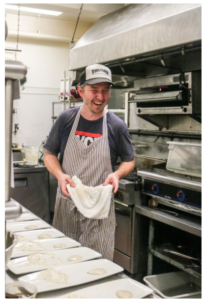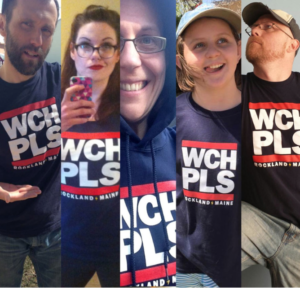There’s a really interesting new blog series happening on the website FromAway.com right now on the topic of food vendors, vendor relationships, and time management. To get you up-to-speed, Malcolm Bedell owner of the food trailer ‘Wich, Please is sharing his lessons learned after his first 12 months transitioning from an employee working a desk job to being the CEO of his very own food business. It’s a riveting read that takes readers along on the critical first year in business.
You can get caught up on this series of posts below. Although Bedell’s lessons in the past year have ranged the gamut of hiring employees to his perspective on operating at large events, the lesson we’re going to lock in on for today’s post is Bedell’s topic of working with vendors. Or more specifically making sure you’re not spreading yourself too thin.
Lessons Learned: Part One – Learn Malcolm’s experience navigating local laws and why the support of the community is so critical for your business.
Lessons Learned: Part Two – In this post, Malcolm explains his mindset shift from always needing to purchase the most expensive and artisan breads and cheeses when starting his business to having to make the tough decision to cut costs for the long-term health of the business. Malcolm also shares how interesting it is to work in an 8″ by 12″ foot trailer for a summer.
Lessons Learned: Part Three – In the third and final segment, Malcolm shares his exact process for building a following on social media be it Facebook, Twitter, or Instagram. Additionally, he shares how the mentorship of other concession owners has been invaluable in the process of learning how to operate effectively.
Less Vendors = Happier Food Business Owners
One of the topics in the lessons learned post above that really hit home to us was the insights learned about working with outside vendors. As a manufacturer of mobile food units, we have seen other vendors struggle with selecting food vendors as well and wanted to discuss the topic on a deeper level here.
When you’re in the early stages of starting a food business or are re-evaluating business relationships there are a couple important points we recommend taking into account. They are two of the most highly valuable resources your food business has:
 Time: As a food business operator, you’re being pulled in a dozen different directions every day. A typical day will include speaking with customers, booking catering gigs, cooking food, serving food, and we haven’t even gotten to the accounting part yet. To make things simpler on yourself, we recommend working with 1 – 3 food vendors only if possible for your food startup. This means less phone calls for you, but it also means less coordinating with other business owners, and even less travel.
Time: As a food business operator, you’re being pulled in a dozen different directions every day. A typical day will include speaking with customers, booking catering gigs, cooking food, serving food, and we haven’t even gotten to the accounting part yet. To make things simpler on yourself, we recommend working with 1 – 3 food vendors only if possible for your food startup. This means less phone calls for you, but it also means less coordinating with other business owners, and even less travel.
Starting any type of business requires a gargantuan effort. Don’t make things even more difficult on yourself than they need to be.
Money: Anything you can do to cut food costs without compromising quality is a smart move. Ultimately, you as the business owner need to make the tough decisions on this one. Sure… It would be wonderful to go out and purchase artisan bread from three different bakeries and serve high-end $18 mustard with each sandwich. But if you do so, customers may not be able to afford your sandwiches if you want to make profit. You could also be cutting profit out of your service, which is not going to help you continue operating for long.
Overall, we thank Malcolm for sharing his experience operating a food trailer in his first year. It not only demonstrates some of the frequently made mistakes to look out for when getting started, but also shows that if you’re willing to learn and adapt with your business, you can be a successful operator on your own terms.

